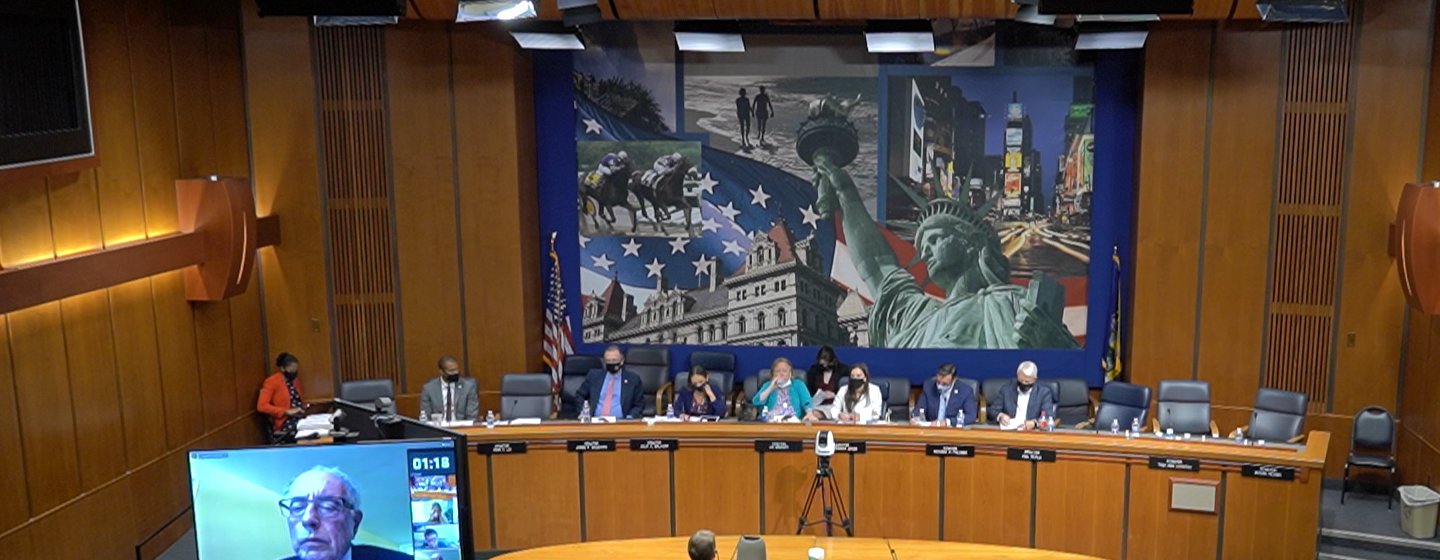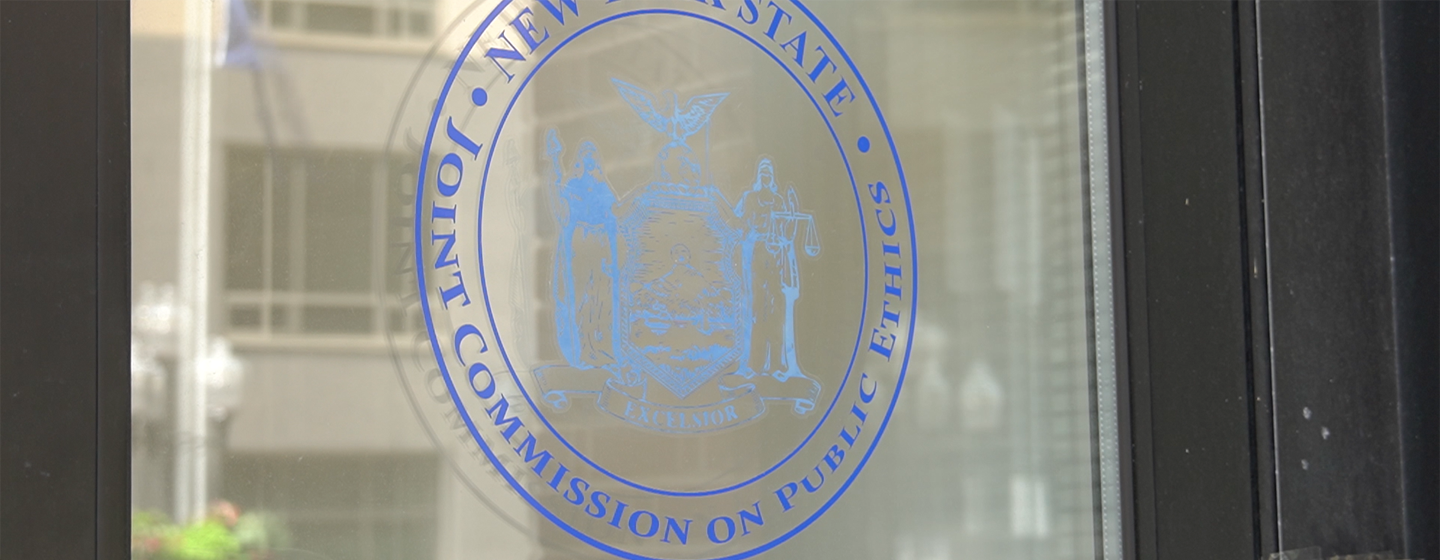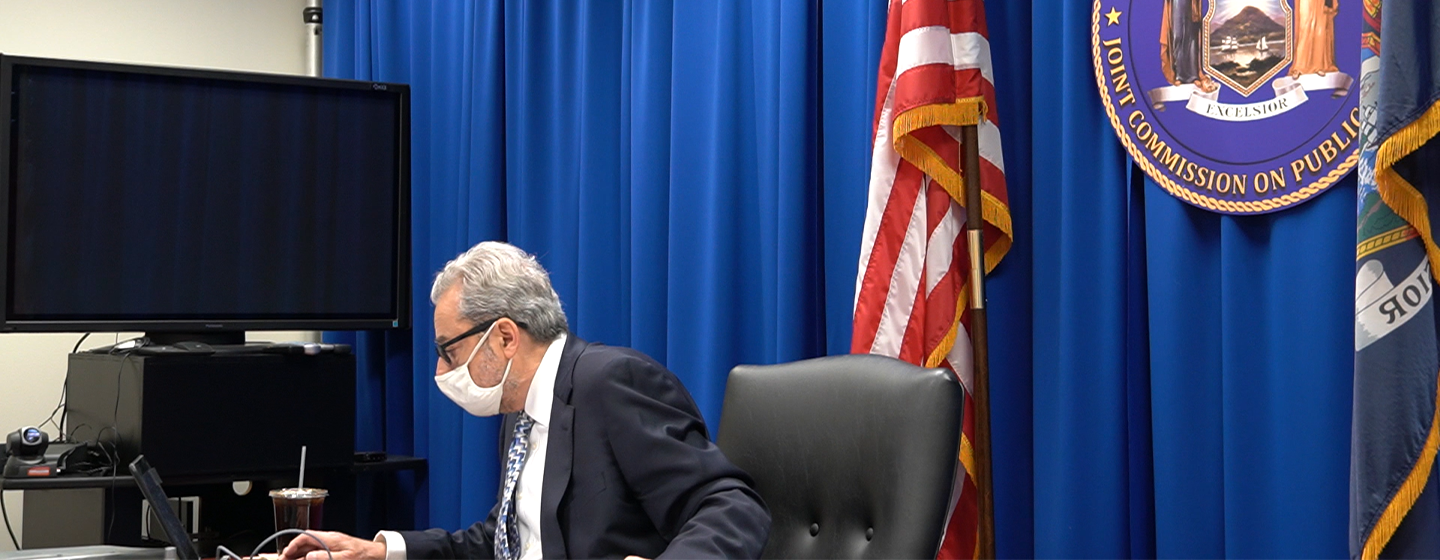State Ethics Board Set for Overhaul in 2022

State Ethics Board Set for Overhaul in 2022
The controversy over former Gov. Andrew Cuomo’s $5 million memoir on how he handled the COVID-19 crisis has also highlighted the weaknesses of the body that’s supposed to serve as New York’s ethics police.
Current Gov. Kathy Hochul is among those demanding changes to the Joint Commission on Public Ethics, or JCOPE.
JCOPE was created by Cuomo shortly after he took office a decade ago. It was dominated by his appointments and managed by a succession of close Cuomo allies until he resigned in a sexual harassment scandal in August.
Largely viewed as ineffective, it early on earned the moniker JJOKE. The commission declined to look into allegations against, among others, former Cuomo top aide Joe Percoco. Federal prosecutors were not as reticent, and Percoco was convicted and served prison time for bribery and kickback schemes.
Investigations into sexual harassment and sexual assault accusations against state lawmakers have languished for years.
John Kaehny with the government reform group Reinvent Albany has long advocated for the commission to be restructured.
“The state ethics commission was completely politicized and undermined by Andrew Cuomo as a deliberate strategy to keep them out of his own hair so he could do what he wanted to, which he did,” Kaehny said. “And to serve as a cudgel to potentially punish political opponents.”
He said the way the commission has handled Cuomo’s $5 million book deal is a case in point.
In the summer of 2020, the commission’s staff signed off on Cuomo’s request to write the book about his management of the pandemic during the height of the crisis that spring. As part of the agreement, Cuomo promised to work on “American Crisis: Leadership Lessons from the COVID-19 Pandemic” on his own time and without any state resources. Some commissioners appointed by the legislative leaders complained that they weren’t told of the approval until after it happened.
In the months that followed, questions were raised about whether the governor broke the public officers law by using staff to help him write and edit the manuscript and make copies of drafts on office printers.
State Attorney General Tish James and an Assembly committee looking into whether to impeach the governor found documents, including emails and text messages, that showed Cuomo did use his staff to help produce the book.
“Cuomo lied to the ethics commission in a couple ways,” Kaehny said. “He had in fact started working on the book before even seeking the ethics commission’s permission. And he had state employees work on the book, which he pledged not to do.”
Cuomo maintains that his aides volunteered to help him on the memoir.
Since the former governor left in late August, the commission has done an about-face. Hochul has replaced nearly all of Cuomo’s appointees on the commission.
In November, the commissioners — no longer influenced by the former governor’s appointees — voted 12 to 1 to rescind Cuomo’s book deal, saying he misrepresented the arrangement. They gave him 30 days to reapply for permission.
When Cuomo did not respond, the commission voted in December, also 12 to 1, to force him to give back his earnings so far on the $5.1 million deal. The resolution asked the attorney general to collect the money.
Cuomo attorney Jim McGuire fought back, calling JCOPE’s actions “unconstitutional” and promising a lengthy court battle.
In the end, asking for the $5 million back was yet another misstep for JCOPE. James said she can’t legally pursue the money because the commission failed to do its homework and first determine specific penalties and fines for Cuomo’s alleged violation of the public officers law. James also said she can't act until JCOPE first tries to collect the money itself.
During the fall, Hochul and her staff met with government reform groups, including Kaehny’s Reinvent Albany, as well as reform-minded state legislators to get ideas for a completely new ethics oversight panel.
“What I’m going to do is turn it upside down,” Hochul said on Sept. 15. “And to challenge the premise that an entity that is created by elected officials with their own appointees should be charged with investigating those individuals, should circumstances arise. The whole premise behind it is flawed.”
Kaehny said he thinks the effort is a sincere one.
“I totally believe that the governor and the Legislature will do away with JCOPE this session,” he said. “And replace it with a new and hopefully independently appointed body with new ethics and disclosure rules.”
Details are expected to be released in Hochul’s State of the State speech on Jan. 5.
Related:

Lawmakers, JCOPE Clash in Hearing Over NY’s Ethics Laws
Much of the focus of the hearing was the Joint Commission on Public Ethics, or JCOPE, the state’s current ethics agency.

JCOPE Votes to Investigate Itself Over Cuomo Book Deal Approval
The former governor was paid $5 million dollars for the book, titled “American Crisis: Leadership Lessons from the COVID-19 Pandemic,” after the commission’s top staff approved Cuomo’s request to receive the outside income.

JCOPE Critics Are Not Giving Up
The chair of the state Senate Ethics Committee said even though hearings to fix New York’s dysfunctional ethics panel have been delayed, she’s hopeful that solutions can be reached by the end of the summer.


